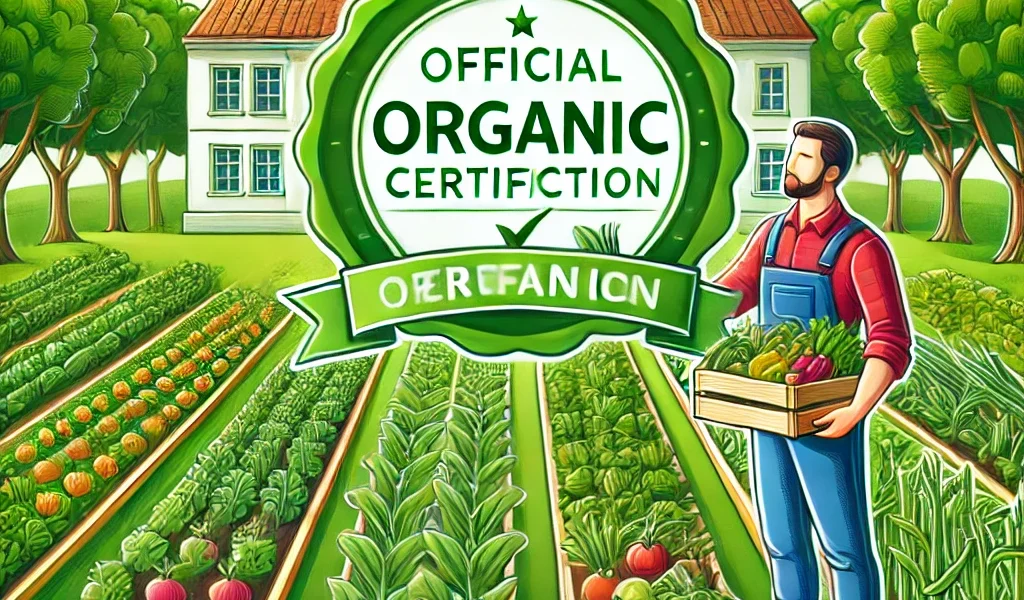Introduction
Organic farming is gaining popularity in India due to its environmental benefits, health advantages, and increasing consumer demand. However, getting organic certification and branding support can be challenging for farmers. To help, the Government of India offers various schemes that provide financial aid, certification assistance, and branding support to organic farmers and businesses.
This blog explores key government initiatives, eligibility criteria, benefits, and the step-by-step application process for organic certification and branding support.
Importance of Organic Certification & Branding
Organic certification and branding help farmers in multiple ways:
- Market Recognition: Certified organic products gain credibility and trust among consumers.
- Higher Profits: Organic products often fetch premium prices.
- Access to Export Markets: Certification opens doors to international markets.
- Sustainability: Encourages environmentally friendly and chemical-free farming.
- Government Incentives: Eligible farmers can receive financial and technical support.
Major Government Schemes for Organic Certification & Branding
1. National Programme for Organic Production (NPOP)
- Objective: To regulate and promote organic farming through certification.
- Key Benefits:
- Certification under India Organic and National Organic Standards.
- Recognition in domestic and international markets.
- Assistance for third-party certification.
- Eligibility:
- Individual farmers, farmer groups, cooperatives, and agribusinesses.
- Apply through Accredited Certification Bodies (ACBs) under APEDA.
2. Paramparagat Krishi Vikas Yojana (PKVY)
- Objective: To promote traditional organic farming through cluster-based approaches.
- Key Benefits:
- Financial assistance of Rs. 50,000 per hectare over three years.
- Support for organic inputs, certification, and marketing.
- Formation of Organic Farmer Clusters.
- Eligibility:
- Farmers in groups of 50 or more covering at least 50 hectares.
- Application through State Agriculture Departments.
3. Mission Organic Value Chain Development for North Eastern Region (MOVCDNER)
- Objective: To boost organic farming and marketing in the North-Eastern states.
- Key Benefits:
- 75% subsidy on organic certification costs.
- Assistance for processing units, storage, and branding.
- Support for export linkages.
- Eligibility:
- Farmers, FPOs, and cooperatives in the North-Eastern Region.
- Apply via MOVCDNER nodal agencies.
4. Jaivik Kheti Portal (Organic Farming Market)
- Objective: To connect organic farmers directly with consumers.
- Key Benefits:
- Free online platform for marketing organic produce.
- Enables farmers to sell without middlemen.
- Helps in brand-building and customer outreach.
- Eligibility:
- Any certified organic farmer or group can register.
- Apply online at Jaivik Kheti Portal (https://jaivikkheti.in/).
5. National Horticulture Board (NHB) Organic Farming Support
- Objective: To provide assistance for organic farming in horticulture.
- Key Benefits:
- 50% subsidy on organic farming inputs and certification.
- Support for branding, packaging, and marketing.
- Eligibility:
- Farmers, FPOs, and horticulture-based agribusinesses.
- Apply through NHB online portal.
How to Apply for Organic Certification & Branding Support?
Step 1: Choose the Right Scheme
- Identify a government scheme that suits your farm’s location and needs.
- Check eligibility criteria and required documents.
Step 2: Register for Organic Certification
- Approach an Accredited Certification Body (ACB) listed on the APEDA website.
- Submit required documents such as land records, crop details, and farm management plans.
Step 3: Implement Organic Practices
- Follow organic farming guidelines under the scheme.
- Avoid synthetic fertilizers and pesticides.
- Maintain proper records of inputs and practices.
Step 4: Certification Inspection
- Certification authorities will inspect the farm and test soil and crops.
- Farmers must comply with organic standards for minimum 2-3 years (conversion period).
Step 5: Obtain Organic Certification
- After successful inspection, farmers receive an Organic Certificate.
- Certification bodies issue labels like India Organic, PGS-India, or NPOP.
Step 6: Apply for Branding & Marketing Support
- Register on Jaivik Kheti Portal to sell directly to consumers.
- Use subsidies under PKVY, MOVCDNER, or NHB for branding and packaging.
- Farmers can also partner with e-commerce platforms and organic stores.
Best Practices for Organic Farmers
- Maintain Records: Keep detailed records of organic inputs, farm activities, and sales.
- Participate in Farmer Groups: Many schemes support Farmer Producer Organizations (FPOs).
- Use Digital Marketing: Promote products via social media and organic marketplaces.
- Ensure Compliance: Follow government guidelines to avoid certification revocation.
- Leverage Government Support: Apply for relevant schemes to reduce costs.
Conclusion
Government schemes for organic certification and branding offer tremendous opportunities for farmers to gain recognition, increase profitability, and access premium markets. By taking advantage of these schemes, farmers can transition smoothly to organic farming and establish a strong market presence.
Action Step: Farmers should visit the APEDA, PKVY, and NHB portals to check eligibility and start their organic certification journey.




